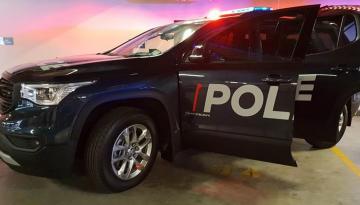
Despite controversy over the police armed response teams (ARTs) some people feel safer with them, a South Auckland-based Māori warden says.
It follows Māori justice advocates submitting an urgent Waitangi Tribunal claim over the failure of the Crown to inform Māori about the trial of the ARTs in Counties Manukau, Waikato and Canterbury.
"Even without the ART, police are nine times more likely to pull a gun out on Māori," claimant and justice advocate Julia Whaipooti said.
"It will put the safety of Māori and their communities at greater risk. I am concerned about the Americanisation of New Zealand's police force and the ongoing impact arming police will have on our lives."
Whaipooti cited statistics which showed that in the decade from 2009, 66 percent of those shot by the police were Māori or Pasifika.
"Why would we arm a force that Māori don't trust, so it's not for our safety because the people who don't trust police are Māori."
But Ōtahuhu Māori wardens chair Thomas Henry said that elderly in South Auckland, where there are frequent shootings, did feel safer by having ARTs in their communities.
"Our elderly people, they're the ones who're feeling threatened in their communities and too frightened to speak out. We don't want any of our elderly people to feel unsafe," he said.
However, Ōtautahi Māori warden chair Jacqui Te Wani wasn't comfortable with how armed officers patrolling the streets of Christchurch "has become reality" and she was concerned that it would lead to more Māori being shot at.
She agreed that the Crown had breached the Treaty by failing to inform Māori of the trial.
"To consult should've been tuatahi, first and paramount before anything else," Te Wani said.
"Consult with our kaumātua's, talk with iwi, hop on the marae, say 'this is their plan, this is their idea going forward, how can we help'," she said.
The six-month trial of the ARTs was introduced last October in response to the Christchurch mosque shooting which left 51 people dead.
Data released under the Official Information Act shows the teams were deployed 75 times a day in the first five weeks - 50 times the rate the Armed Offenders Squads were called out last year.
The teams, armed with rifles and tasers, are designed to cut down response times to serious firearm incidents through preventative patrolling.
However, the response teams have been criticised for pulling people over for lower-risk offences.
Police did not respond to RNZ's request for comment.
RNZ


